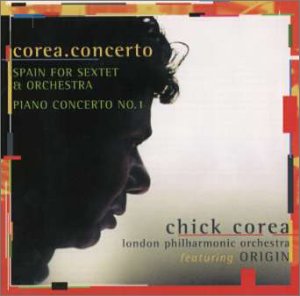
| Artist: | Chick Corea |
| Title: | corea.concerto |
| Released: | 1999.09.06 |
| Label: | Sony Classical |
| Time: | 54:18 |
| Producer(s): | Steven Epstein |
| Appears with: | |
| Category: | Classical |
| Rating: | *********. (9/10) |
| Media type: | CD |
| Purchase date: | 2002.08.08 |
| Price in €: | 12,99 |
| Web address: | www.chickcorea.com |